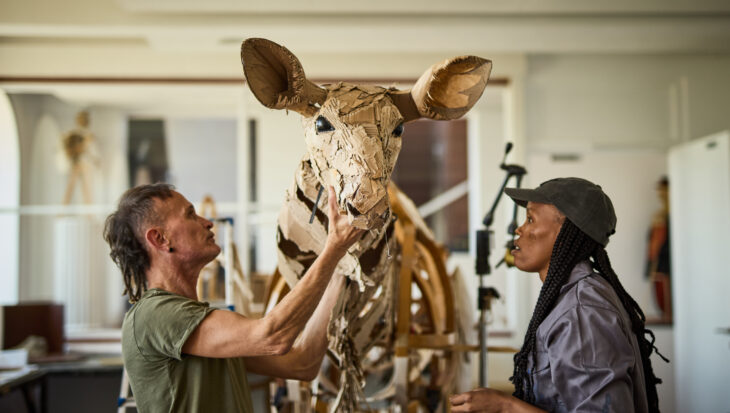‘The Herds’ will be arriving in London this Friday!
Have you heard? A breathtaking arts initiative, ‘The Herds’ will be arriving in London this Friday.
Posted 27 Jun 2025

Posted on the 20th February 2020
In October 2018, a political debate in Westminster forced the racing industry to implement a new strategy for horse welfare. As a consequence, racing’s self-appointed regulator, the British Horseracing Authority, established the Horse Welfare Board (HWB) as a means of pacifying political and public concern about the treatment of horses in racing.

A year since its formation, the Horse Welfare Board has produced a strategic five-year plan for the welfare of horses bred for racing, titled: A life well lived.
Animal Aid’s initial response to the document is that of disappointment. It was an opportunity for effective change that could have seen the implementation of practical and rapid improvements that would immediately upgrade and advance race horse welfare.
It has failed to recognise even basic weaknesses within the current rules and regulatory system, particularly in relation to the use of the whip. At a stroke, it had the opportunity for a ban on its use for ‘encouragement’, yet, has chosen to pacify those in racing, especially jockeys, by further consultation on what is a very basic issue of hitting a horse unnecessarily.
In respect of this, the sheer audacity of the title itself, A life well lived, is an insult to the around-200 equine victims who die on racecourses annually.
There are four Key Outcomes sought by the HWB strategy and that includes ‘Growth and maintenance of TRUST’. Therefore one quarter is dedicated to improving racing’s poor public image. This is a concern not for the horses, about whom this document was meant to be, but for an industry that uses animals at its will to do as it pleases.
Says, Dene Stansall, Animal Aid’s Horse Racing Consultant:
‘An opportunity has been missed by the Horse Welfare Board to create something that represented genuine progress in race horse welfare. Sadly, it appears that more consultation will take place and a focus on the promotion of welfare messages – rather than practical change – is at the heart of their document. This offers little hope for horses in racing. Only a truly independent welfare regulator can offer a future for horses where their lives are, to a certain degree, “well lived”, despite the fact that the racing industry is inherently exploitative.’
Have you heard? A breathtaking arts initiative, ‘The Herds’ will be arriving in London this Friday.
Posted 27 Jun 2025

As the greyhound racing industry releases its annual data on the number of dogs’ deaths, a raft of well-known names - alongside their canine friends - has called upon the Government to end greyhound racing....
Posted 26 Jun 2025
